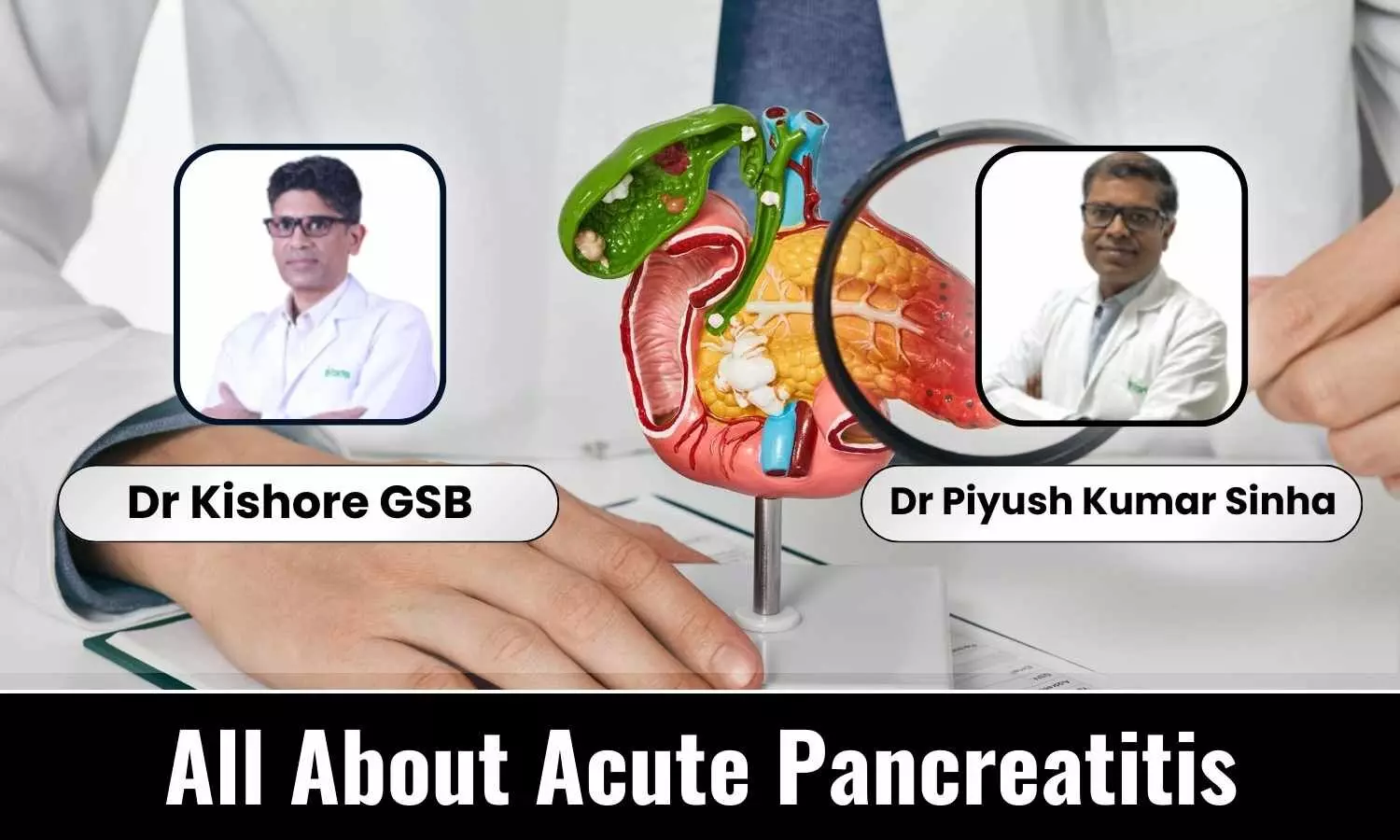Acute Pancreatitis: Understanding the Inflammation Within - Dr Kishore GSB and Dr Piyush Kumar Sinha

Inflammation and its Causes
Acute pancreatitis occurs when the pancreas becomes inflamed. This inflammation disrupts its normal function, causing the digestive enzymes to activate prematurely within the pancreas itself, essentially leading to self-digestion. The severity of the inflammation determines the course of the disease.
Several factors can trigger this inflammatory response:
- Gallstones: Gallstones can lodge in the common bile duct, blocking the flow of bile and pancreatic enzymes. This backup can inflame the pancreas.
- Alcohol Abuse: Heavy alcohol consumption over time can damage and inflame the pancreas. Sometimes, even a single drink can trigger an episode of acute pancreatitis.
- Other Causes: While less common, other potential triggers include certain medications, autoimmune diseases like lupus, infections (mumps), high blood triglyceride levels, and even some surgical procedures.
Recognizing the Signs & Symptoms of Acute Pancreatitis
The hallmark symptom of acute pancreatitis is severe upper abdominal pain that comes on suddenly and intensifies rapidly. This pain can radiate towards the back, often described as a boring or gnawing sensation. Here are some other telltale signs:
- Nausea and vomiting
- Loss of appetite
- Fever
- Rapid heart rate
- Feeling unwell or malaise
- Abdominal swelling (in severe cases)
The pain often worsens with eating or drinking, and sitting hunched forward may provide some relief.
Diagnosis
Doctors diagnose acute pancreatitis by combining several approaches:
- Symptoms and Medical History: A detailed discussion of your symptoms and any history of risk factors like gallstones or alcohol abuse is crucial.
- Blood Tests: Levels of pancreatic enzymes (amylase and lipase) in your blood are typically elevated (to more than thrice the upper limit of normal) during an attack.
- Imaging Tests: Imaging techniques like ultrasound, CT scan, or MRI scan help visualize the pancreas and identify gallstones, inflammation, or complications.
Treatment Options
The primary goal of treatment is to manage the inflammation and give your pancreas a chance to heal.
- Pain Management: This is a top priority. Medications and pain management techniques can help alleviate the discomfort.
- Resting the Pancreas: You will likely be advised to stop eating and drinking initially to allow your pancreas to rest. Fluids will be provided intravenously to keep you hydrated.
- Medications: Medications may be given to control nausea and vomiting and address any underlying causes like gallstones.
- Supportive Care: Depending on the severity, hospitalization and intensive care may be necessary.
Prognosis and Prevention
Thankfully, with prompt diagnosis and treatment, most cases of acute pancreatitis resolve within a few days. However, early intervention is key to prevent complications like:
- Infections: The inflamed and damaged pancreas becomes susceptible to infection.
- Fluid Collections: Pockets of fluid filled with digestive enzymes or blood can form around the pancreas.
- Nutritional Deficiencies: Difficulty digesting nutrients can lead to malnutrition.
- Chronic Pancreatitis: In a small subset of susceptible individuals, repeated episodes of acute pancreatitis can lead to chronic pancreatitis, a permanent condition with ongoing inflammation and pancreatic damage.
Prevention methods
Here are some lifestyle modifications that can help reduce your risk of acute pancreatitis:
- Alcohol Consumption: Limit alcohol intake or abstain completely if you have a history of pancreatitis.
- Maintain a Healthy Weight: Obesity is a risk factor.
- Eat a Healthy Diet: Choose a balanced diet low in fat and processed foods.
- Follow Doctor's Orders: If you have gallstones, get them removed as advised by your doctor to prevent recurrent biliary problems or pancreatitis. .
Around 80-85% of acute pancreatitis are mild and self limiting. Severe pancreatitis defined by the presence of organ failure (especially that persists for more than 48 hours) becomes a potentially life-threatening condition that requires ICU care, prolonged hospitalization for recovery.
If you experience any symptoms suggestive of acute pancreatitis, seek immediate medical attention. Early diagnosis and institution of goal directed treatment can optimize outcome.



